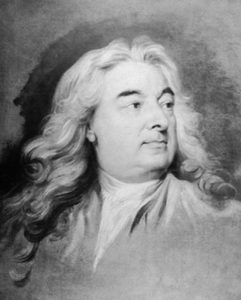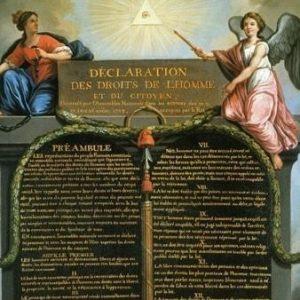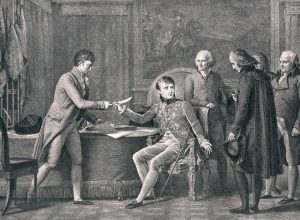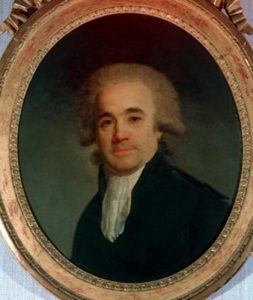Resumption of worship after 9 Thermidor
After the Reign of Terror, the Church only slowly recovered.
The resumption of worship after 9 Thermidor did not result in any attempt at reorganisation of the church. The churches were not in any hurry to re-establish the synod system, with the exception of Haut-Languedoc where it began again in 1796.
Most pastors in the Reformed Church resumed their jobs, although their number was somewhat depleted. It was often for financial reasons that some pastors had to take up another profession.
Proclamation of freedom of worship
On the instruction of the Protestant Boissy d’Anglas, a law of 3 ventôse year III (21st February 1795) officially proclaimed the separation of Church and State, and freedom of worship with no State support, although this would be amended by the Concordat.
Protestant worship had never been supported by the State.
At the same time, another law made places of worship available for use and allowed several denominations, at different times, to use the same building. This practice was rarely followed, Protestants preferring to return to “Church of the Desert” customs in situations where they did not own a building in their own right.
Return of Huguenots from the "Refuge"
Many Huguenots benefited from the royal Edict of 15th December 1790 which gave French nationality to everyone in exile on account of their religion. Anyone born in another country and descended, in any degree whatsoever, from a French man or woman exiled because of their religion, was declared a French National. If they returned to France, made their home there and took the civil oath, they enjoyed the rights of a French citizen. The law of 15th December 1790 also restored material assets to “religious fugitives”. Its first article said : “Religious fugitives and others whose assets were confiscated because of their religion, and their heirs, may repossess (…) such assets which are currently in the hands of farmers but under state control”. It is impossible to know exactly how many benefited from this law. However, it must be said that it was many fewer than lost out originally. The largest numbers of returnees came from Prussia and French-speaking Switzerland. Amongst the latter, one can mention the writer and politician, Benjamin Constant (1767 – 1830).






